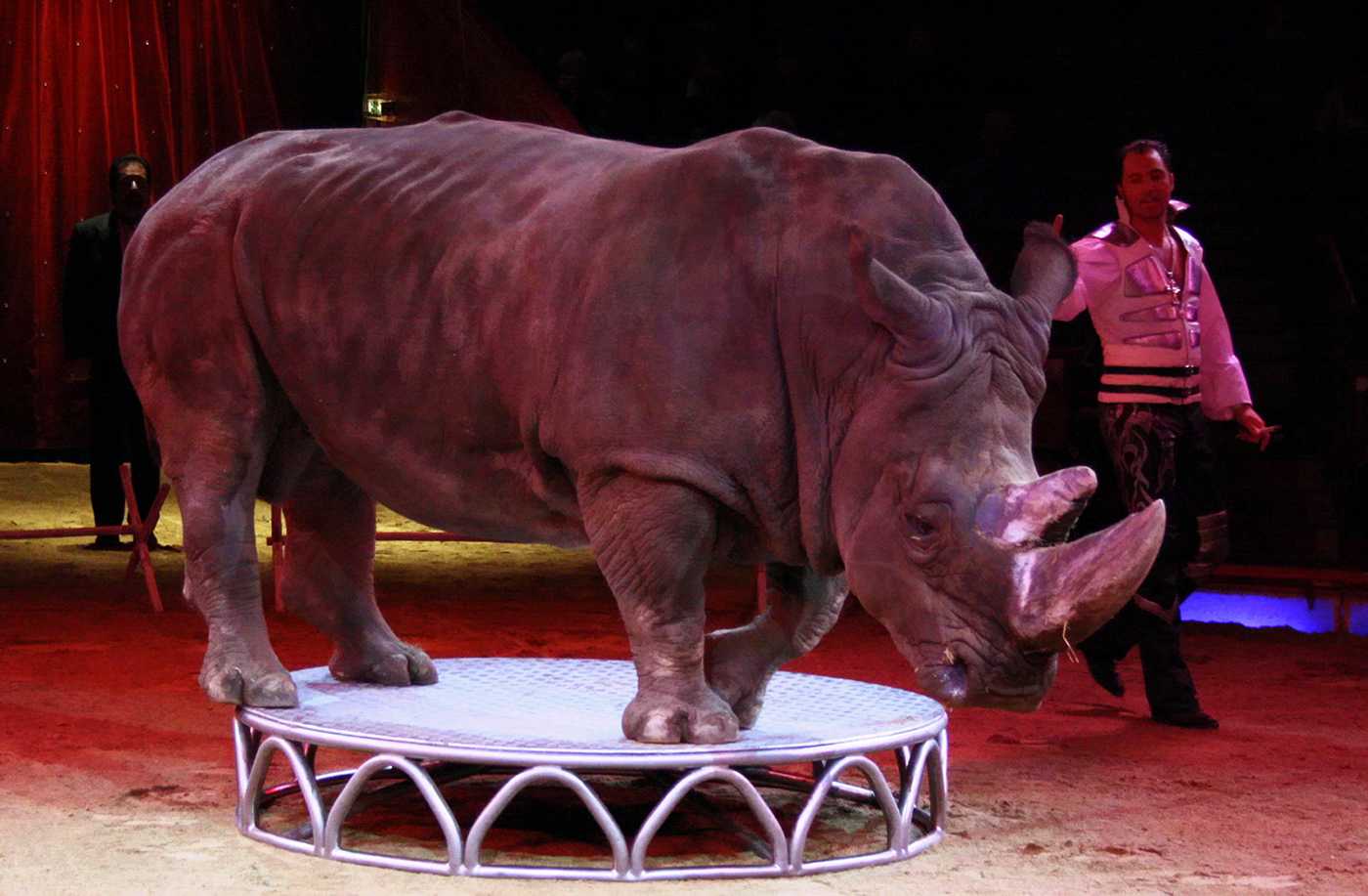
COURTESY OF WIKIMEDIA COMMONS
Those of us who watched the heart-wrenching movie “Dumbo” as kids know the perils suffered by circus animals at the hand of trainers and ringmasters.
If you’ve been to the circus, the fair or any kind of amusement park, you’ve more than likely been entertained by an animal doing tricks or giving rides. Growing up watching these performances has ingrained something within us to see the treatment of animals as secondary to our amusement.
A video recently went viral from The Big E fair in Springfield, Massachusetts showing a camel being forced to stand after it collapsed, as well as a photo of an elephant at the same fair limping while giving a ride. In response, over 111,000 people have signed an online petition to end wild animal acts at the fair.
The Massachusetts Society for the Prevention of Cruelty to Animals said it has inspected The Big E four times and said they didn’t find evidence of felony animal cruelty in the camel’s case, nor did they see the elephant limping. However, in 2017, inspectors issued a violation to Tim Commerford, the owner of the animals, for failing to get veterinary foot care for one of the elephants.
Inspectors can’t trust that Commerford isn’t covering up health concerns his animals may be experiencing. With only three elephants on hand, putting one out of commission would be a monetary loss.
Our standards for the treatment of animals shouldn’t be based around felonies. Just because felony animal cruelty, as the MSPCA defines it, doesn’t encompass animals collapsing in pain or exhaustion, it doesn’t mean that what we see in the video isn’t a fundamentally inhumane way to treat creatures that have no voice of their own.
The Big E is the largest fair in the Northeast. The way they treat their animals sets an important precedent for smaller fairs, and if the MSPCA continues to excuse cases of mistreatment at The Big E, what’s to stop smaller businesses from getting away with the same behavior?
Individuals, as well, have a responsibility to invest their money in businesses they can stand by. It’s not enough to go to a fair that offers animal acts and to just go on the ferris wheel instead. Averting your eyes from elephants trudging in circles around a parking lot doesn’t change the fact that you paid for a ticket, and that money will go toward the continued operation of those performances.
Eugene Cassidy, the president of the Eastern States Exposition, which owns The Big E, wrote in an email to WBZ that the camel in the video was “young, somewhat lazy and stubborn.”
Regardless of whether the camel was injured or not, no animal should be exhausted or uncomfortable to the point where it has to act out in protest. The owners of these animals don’t appear to care about their welfare — they appear to care about making maximum profit. It’s up to the people who patronize these businesses to speak with their dollar, and to the state to enforce laws that prevent these situations from happening in the first place.
If people want to see elephants and camels, they can go to a zoo that helps combat wildlife extinction, provides education to its visitors and treats its animals well. Forcing an animal to walk in circles on hot pavement for hours is cruel and exploitative, and it serves no benefit to its species in the natural world.
The MSPCA is lobbying for a law to prevent the use of elephants in traveling animal acts, which is a step toward keeping animals out of the entertainment industry in the first place. Regulations on animal welfare aren’t enough when they aren’t enforced.
It shouldn’t have to be said, but animals are beings with emotions and the capacity to feel pain, and they depend on humans to care for their wellbeing. Treating them as less than such because of our own desire to have the novelty experience of sitting on an exotic animal’s back for five minutes is inexcusable.
It’s time for us to look at this practice now and realize once and for all that allowing animals in fairs and circuses is morally wrong. We must understand that the people who own entertainment animals don’t have their best interests at heart and step in where they lack humanity.
CLARIFICATION: A previous version of this editorial misquoted Cassidy as saying the camel in the video was “lazy and stubborn” when the correct quote, sent in an email to WBZ, stated that the camel was, “young, somewhat lazy and stubborn.” An updated version of this editorial reflects this correction.